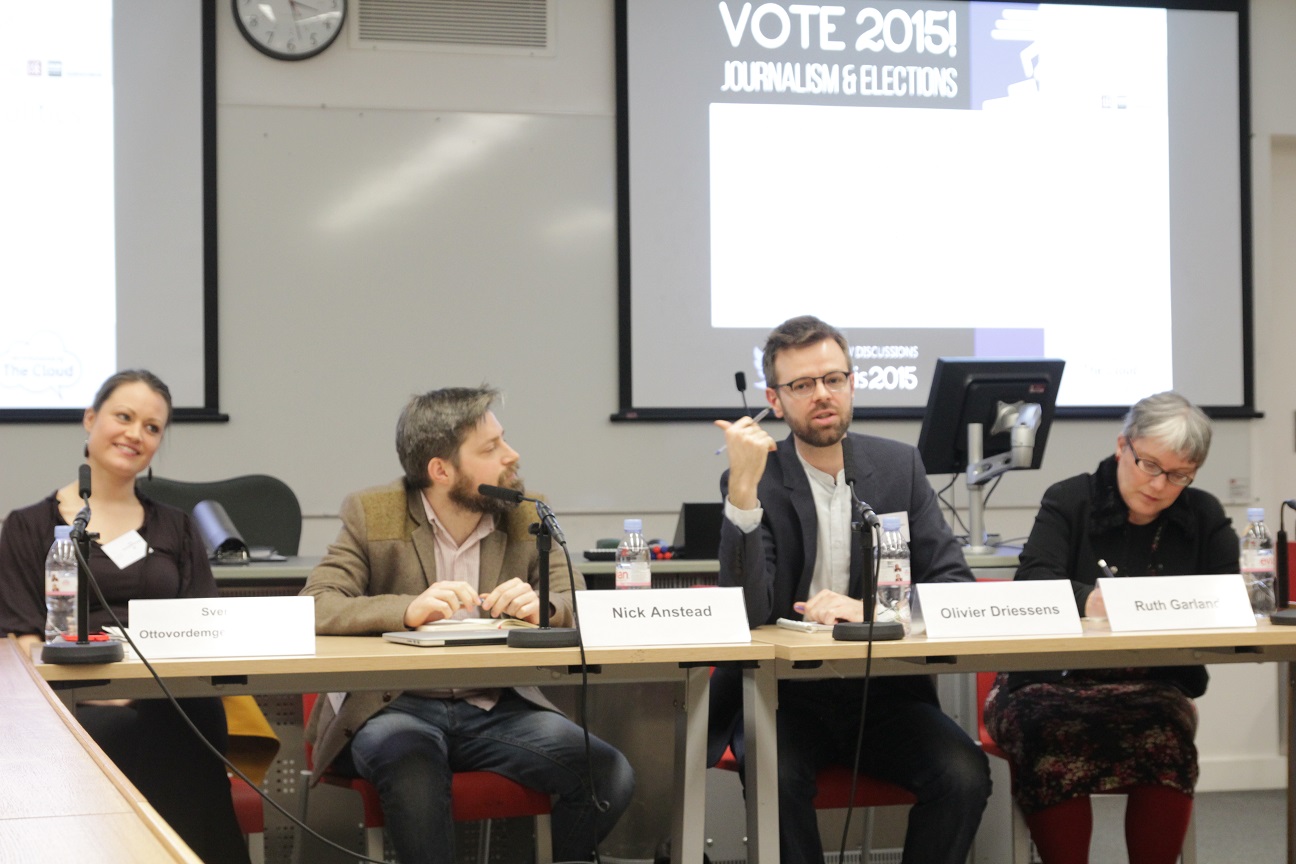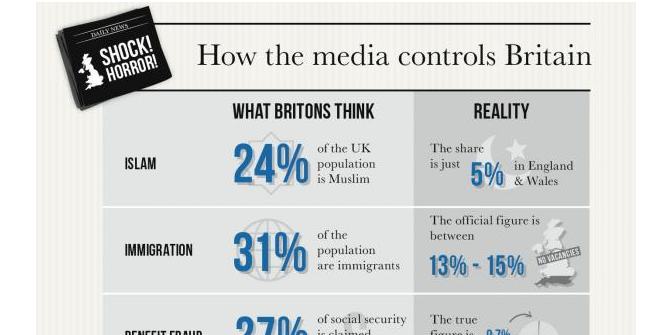This article is by LSE MSc student and Polis intern Emma Archbold
 When it comes to talking about journalism, it is often the case that the negative that outweighs the positive. Fierce competition, newspaper decline, deadline demands; as students, we have heard them all. Convincing yourself not to pursue a career in journalism has become easier than convincing yourself to try.
When it comes to talking about journalism, it is often the case that the negative that outweighs the positive. Fierce competition, newspaper decline, deadline demands; as students, we have heard them all. Convincing yourself not to pursue a career in journalism has become easier than convincing yourself to try.
The Student Journalism panel at last week’s LSESU Student Media Conference included some of these familiar narratives. What was refreshing however was the consensus that, although journalism is tough there are many reasons that make it an exciting a career.
For Tristan Barclay it was the time spent as writer and editor of his student newspaper that set him up to a forge a career as a journalist. Charlie Beckett agreed that student journalism is a prime environment for students to learn about and practice journalism:
“It is a breeding ground…it allows you to screw up, to be adventurous.”
Rachel Oldroyd added that in today’s communication spheres, we have the tools at our fingertips that give us the freedom to write about what we want. Tristan spoke about his time at ‘The Tab’ and successfully flogging student stories to mainstream newspapers. He experienced first hand just how attuned major media organizations are to young voices.
Ahead of the curve
This is true when we consider the significant investment into audience preferences in traditional media processes. As both writers and consumers, students help shape modern journalism – its content, form and language. The stories that we write can have an impact on the world of journalism and getting involved in student media can undoubtedly impact your career after graduation day. As digital natives, our committed engagement with technology plays a key role in bringing issues to the attention of bigger news outlets. Buzzfeed UK for example, recently announced the recruitment of a LGBT editor.
Charlie Beckett described the LSE campus as a unique and ideal setting, a “hotbed” of people from all different backgrounds with diverse perspectives and burning ambition, who are all doing something interesting. LSE and campuses like it, mirror the changes currently taking place in the journalism profession and there is a higher demand than ever for employees from different backgrounds with specific skill-sets and specialised interests:
“The great thing about journalism today is how diverse it is. It desperately needs people with different interests.”
Finding the story
As students we have the freedom and the tools to find the stories that surround us. We should be constantly asking —how can I make this a story?— rather than focusing on what undermines such curiosity. In fact, all the panellists agreed that above all, what defines the character of a journalist is that “insatiable curiosity.”
Journalism is not purely about telling people what you think, but about finding out what other people think. Big or breaking stories are not necessarily the best kind of journalism. Charlie Beckett advised that students need look no further than their University gates to find incredible stories; “the best journalism is local…it is about where you are.”
As students in London, we have access a wealth of knowledge, opportunities and stories. So while it continues to be a highly competitive field, such competition should encourage us to find our own voice and student journalism is a perfect space to do this. With impressive careers in broadcast, investigative and online journalism, all the panelists all began by engaging with smaller stories – local newspapers and student reviews. It was these first steps that helped paved their way to such successful future careers.
So continue to dream big. But don’t be afraid to start small…
This article was written by Emma Archbold on a panel at the LSESU Student Media Conference, 29 Jan 2015 featuring Tristan Barclay (Editor, ESPN), Rachel Oldroyd (Chief Editor, Bureau of Investigative Journalism) and Prof. Charlie Beckett (Director of Polis and LSE Professor).





1 Comments